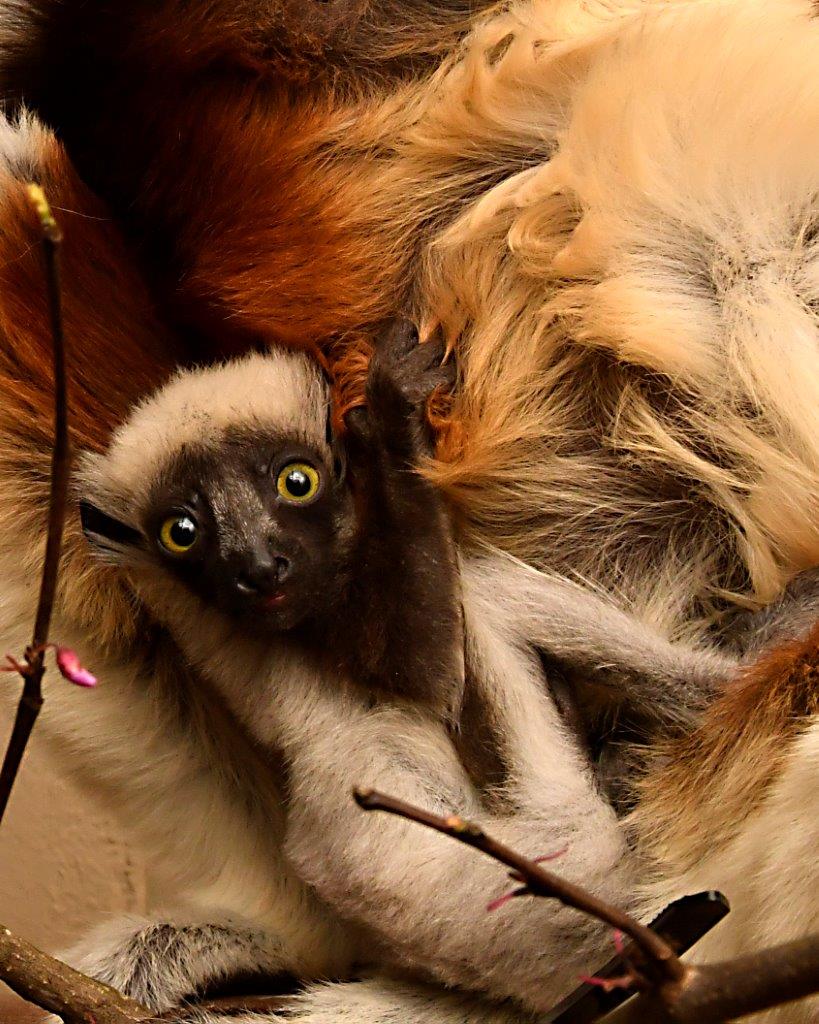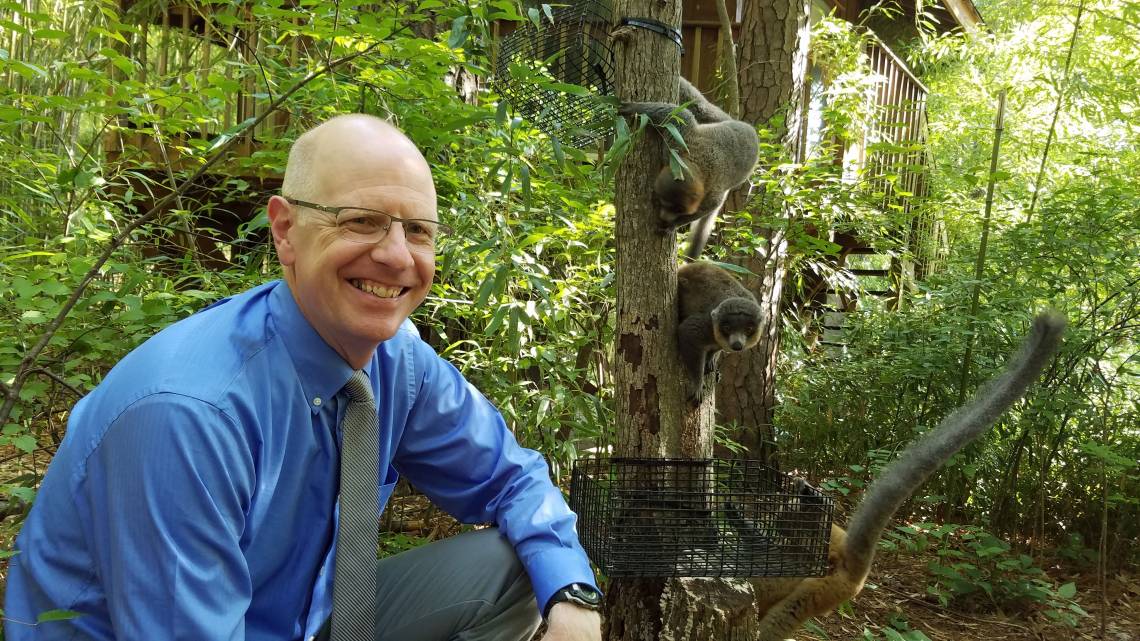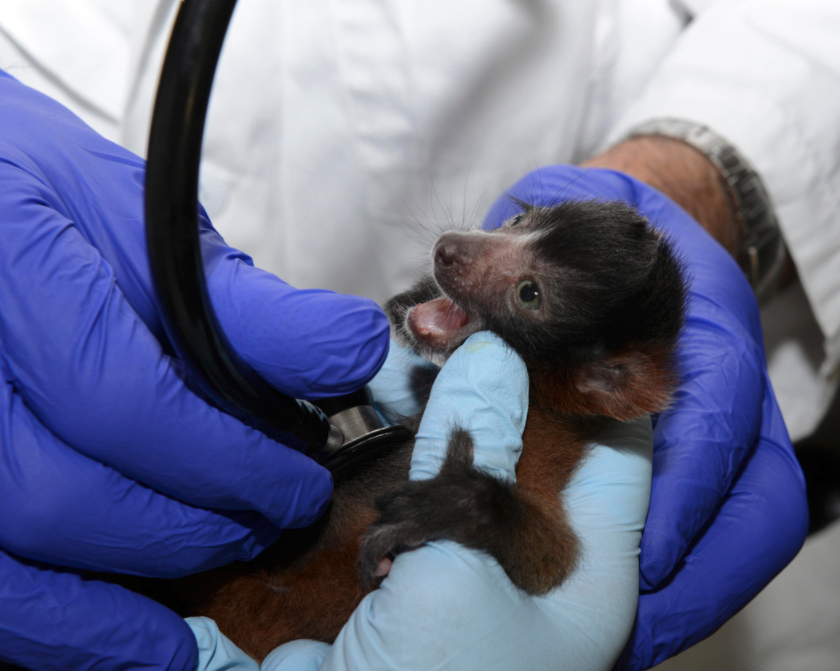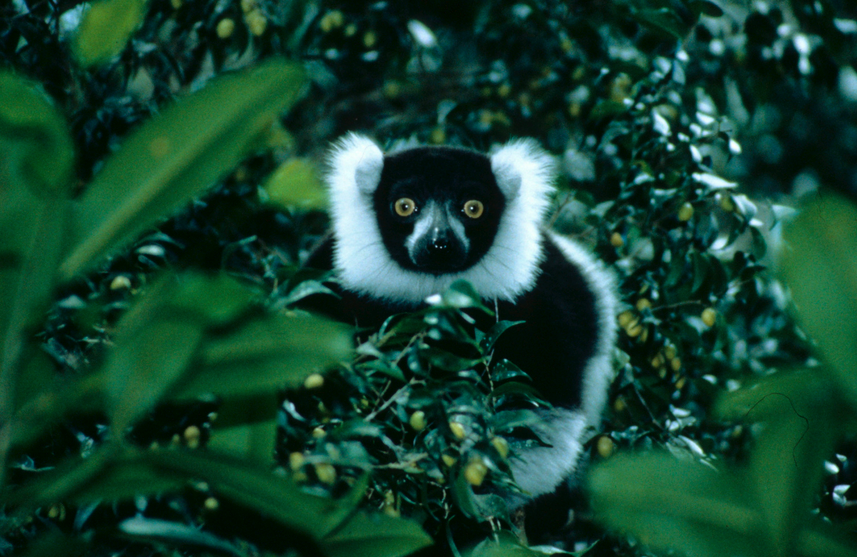Welcome Marie, the Duke Lemur Center’s first infant of the season!
Duke welcomes the newest granddaughter of Jovian, the famous Zoboomafoo Here at the Duke Lemur Center, birth season has begun! Please join us in celebrating the arrival of Marie, a critically endangered Coquerel’s sifaka born February 23, 2019 to first-time parents Gertrude and Remus! In the Northern Hemisphere, Coquerel’s sifakas are typically born between December […]






